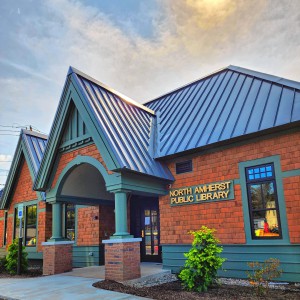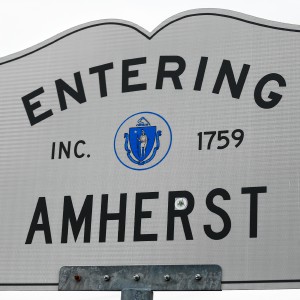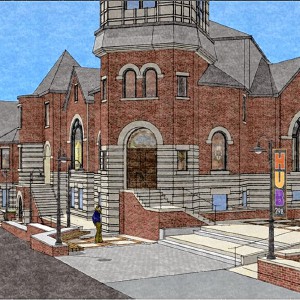Local group pushes psychedelic legislation as D.C. outfit aims for ballot
| Published: 09-12-2023 4:14 PM |
BOSTON — Advocates for decriminalizing psychedelic drugs are hoping to get traction on Beacon Hill and in Massachusetts cities and towns this year, though they are taking different approaches to changing the law.
Grassroots coalition Bay Staters for Natural Medicine gave a presentation to more than 60 lawmakers and staff last Tuesday, pushing the legislation that supporters say would bring relief for people suffering from addiction and mental health issues.
Bay Staters for Natural Medicine has been a driving force in agreements between Massachusetts municipalities and their local police forces to decriminalize psychedelic plants. Somerville, Cambridge, Northampton, Easthampton, and Salem have all passed these measures, making Massachusetts the state with the most decriminalized cities in the country, according to the coalition. In Worcester, the plants are decriminalized for veterans and first responders only, and the Amherst Town Council passed a resolution supporting decimalization.
One of the bills the coalition supports, a proposal from Republican Rep. Nicholas Boldyga (H 3589), would legalize some psychedelic plants and fungi for people ages 21 and older. Similar bills from Democrats Rep. Lindsay Sabadosa and Sen. Pat Jehlen (H 1754 / S 1009) would open up use of the so-called plant medicine — specifically psilocybin, psilocin, dimethyltryptamine, mescaline and ibogaine — to individuals ages 18 and older.
But given the legislative process’s slow pace, other groups have opted to try to bring the question of decriminalizing psychedelics directly to voters.
The D.C.-based New Approach group that helped secure passage of similar ballot questions in Colorado and Oregon has backed a pair of measures here that would also decriminalize the psychedelic substances, though James Davis, the chief local organizer for Bay Staters for Natural Medicine, warned Tuesday against the ballot questions as they are currently written.
The two petitions, certified by the attorney general’s office and both filed by New Approach with support from local advocacy groups, would decriminalize the same plants as Boldyga, Sabadosa and Jehlen’s bills.
“It’s no secret, we all can see that there’s a mental health crisis happening in Massachusetts as well as across the country. Some of the daily treatment options, such as SSRIs, are not helping some people,” Jarad Moffat, a campaign director for New Approach, said. “We’re seeing that psychedelic therapy is a tool that’s worth being explored and it’s a tool that’s worth being made available for folks for whom other options are not working.”
Article continues after...
Yesterday's Most Read Articles
 Northampton bans auto dealerships near downtown; zone change won’t affect Volvo operation on King Street
Northampton bans auto dealerships near downtown; zone change won’t affect Volvo operation on King Street
 Proposed Hatfield pickleball/tennis building raising eyebrows
Proposed Hatfield pickleball/tennis building raising eyebrows
 South Hadley man killed in I-91 crash
South Hadley man killed in I-91 crash
 ‘Home away from home’: North Amherst Library officially dedicated, as anonymous donor of $1.7M revealed
‘Home away from home’: North Amherst Library officially dedicated, as anonymous donor of $1.7M revealed
 Police respond to alcohol-fueled incidents in Amherst
Police respond to alcohol-fueled incidents in Amherst
 Public gets a look at progress on Northampton Resilience Hub
Public gets a look at progress on Northampton Resilience Hub
Both New Approach petitions include a measure to set up a licensed regulatory therapeutic framework using natural psychedelics. This would allow residents to be screened by a licensed facilitator who has gone through a state-regulated training process, and if approved, be administered psilocybin under the facilitator’s supervision. Afterwards, they would continue to see the facilitator for therapy sessions where they unpack their experience.
Moffat said this approach has been researched and is effective for helping people process trauma and work through other mental health challenges.
This state-regulated program approach is currently used in Oregon and is one of the reasons why Davis warned against the ballot initiatives, urging lawmakers Tuesday to pass the bill his coalition supports instead.
“In Oregon, three years after voters approved that ballot measure, the average cost of a psilocybin facilitation session is almost $4,000. An average, or even upper-middle class family in the commonwealth is paying for school, they’re paying for their medical bills, they have transportation costs. That is ridiculous,” Davis said. “And the Oregon Health Authority has been bailed out to the tune of $6.2 million by taxpayers, because they set fees so high, almost $10,000 a month to open up a business that gives facilitation services, that they can’t even afford to maintain the regulatory structure of that program.”
Moffat said he did not agree that these services are costing up to $4,000, adding that the latest reports he had seen showed the sessions as costing between $1,500 and $2,000.
“There’s no denying that this is an issue that needs to continue to be worked on. We’re looking at ways to address that,” Moffat said. “This is a totally new program, no state has ever done anything like this, Oregon is the first. There will be some kinks to be worked out, and that’s to be expected. But as the process moves forward, I hope people will see these kinks will be worked out.”
The proposed ballot initiatives do not specify that psilocybin is only decriminalized for facilitated use. The petitions would, as the lawmaker’s bills would also do, decriminalize all personal use statewide. The ballot questions seek to include this new regulatory framework in addition to decriminalization.
One version of the ballot question that New Approach filed would allow home cultivation of psychedelic plants, while the other does not. Petition filers often file different versions of a policy they hope will make it onto the ballot in case the attorney general’s office rejects one of the proposed initiatives for not being legally sound. Once certified, ballot petitions can collect signatures to appear on the November 2024 ballot.
“The advocacy groups worry about New Approach’s lack of consultation with them, the potential for the out-of-state PAC to distract from locally-developed legislation, and the risk that given New Approach’s history with Oregon’s over-budget psilocybin program, its Massachusetts ballot campaign could produce an expensive psychedelic program that shuts locals out while costing taxpayers money,” Mason Marks, law professor at Florida State University and the senior fellow of the Project on Psychedelics Law and Regulation at the Petrie-Flom Center at Harvard Law School wrote on his Substack about the psychedelic ballot campaign in July.
Davis on Tuesday said his group would “demand representative democracy” to “collaborate, draft and pass a policy that advocates and real voters in Massachusetts want.”
The legislation the coalition supports is currently in the Joint Committee on the Judiciary, where committee members heard advocates’ testimony on the bills in June.
Both the legislation and ballot initiatives seek to decriminalize the psychedelic plants, rather than create a commercialized legal market to buy and sell, like the state’s cannabis industry.
Davis called this a “peer to peer” distribution model, where a person could only legally grow as much as a single person may use, or distribute to some friends or family members. He said that being comfortable, educated, and using the plants intentionally, rather than just at a party, is an important part of using the drug medicinally.
“One of the ways in which people have an uncomfortable psilocybin experience is usually because they’re not very educated,” Davis said. “Someone offers it to them at a party and they’re not really sure what it is. What we do is educate people to have that experience with their therapists, with a counselor, with their trusted friend, their spouse, in a controlled environment. Psilocybin is an intense experience, that’s why it’s so intensely helpful for people.”
Moffat and Davis both highlighted that this treatment is especially helpful for veterans and first responders.
Davis said that statewide decriminalization would also allow therapists and doctors to advise their patients on using natural psychedelics to treat depression, anxiety, PTSD and other mental health issues, and added that studies have shown promising effects of the drugs on Alzheimer’s, Parkinson’s disease and Lyme disease.
“I’m a psychiatrist, I could very easily teach a course on how to safely take psychedelics at home, but I would lose my medical license,” Massachusetts General Hospital psychiatrist Franklin King said. “And I get contacted by patients constantly asking how to do these, how to get them, how can they access them, and I just can’t tell them anything one way or another because it’s illegal.”
King, who is the director of training and education at MGH’s Center for Neuroscience of Psychedelics, said the decriminalization would also create more research opportunities in the area.

 State Senate budget funds free community college for all
State Senate budget funds free community college for all ‘We can just be who we are’: Thousands show support for LGBTQ community at Hampshire Pride
‘We can just be who we are’: Thousands show support for LGBTQ community at Hampshire Pride Doors open at Tilton Library’s temporary home at South Deerfield Congregational Church
Doors open at Tilton Library’s temporary home at South Deerfield Congregational Church Area property deed transfers, May 2
Area property deed transfers, May 2
